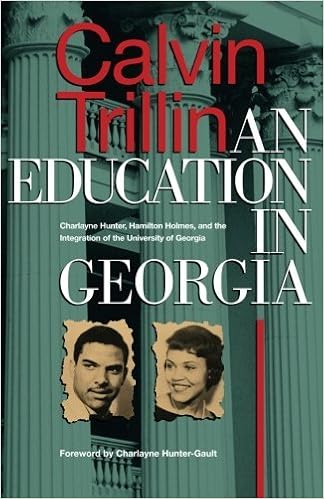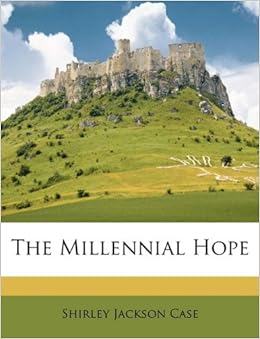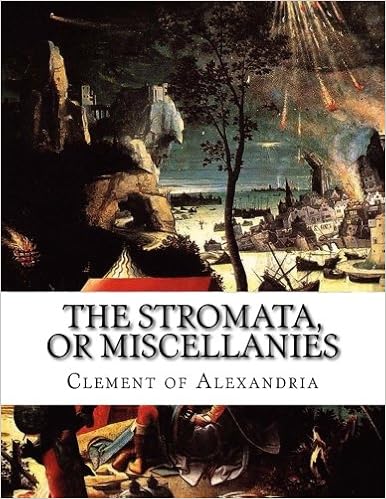Tuesday, February 23, 2021
On "Tao Te Ching" by Lao Tzu *****
Thursday, February 18, 2021
On "The Shorter Columbia Anthology of Traditional Chinese Literature" edited by Victor H. Mair ****
That said, while I enjoyed the basic introduction, I found the book's layout and structure to be less than ideal. In terms of layout and design, the introductions to each of the individual pieces are set as footnotes rather than as headnotes, making for confusing reading. Sure, it's easy enough to figure out how the layout works after the first couple of entries, but the fact that the "headnotes" were set as footnotes means that on the few occassions where an introduction to a given reading is really long, the footnote runs across several pages; one then has to turn back several pages to begin the reading. The annotative footnotes can be useful and are appropriately set at the bottom of the page, though I found as I got deeper into the anthology that I read fewer and fewer of them, as many of them weren't essential for the understanding of the work and thus interrupted my enjoyment of the text; that said, as "optional" reading for further, they certainly are nice to have.
Another complaint I had with the general set-up was the choice to split the work up by genre. This, obviously, is the volume editor's choice, and it has some advantages, such as giving one a sense of the differing genres within Chinese literature as a whole. However, the editor doesn't really use the set-up to advantage because there are no general introductions to each genre outside of the extended footnotes at the start of a given reading. I would have preferred to have read the works in wholly chronological order, which would have given me more of a sense of the developing literary output over Chinese history, be it poetry, fiction, letters, drama, philosophy, criticism, prefaces, or whatever. The genre divisions were particularly frustrating when a given author wrote within several genres (some of which were related--lyric vs. poetry; poetry criticism vs. poetry; letter to another poet vs. poetry); thus, the book splits up his (and it generally is men who are the writers) various selections across hundreds of pages, with footnotes/headnotes referencing one back to some much earlier selection for a biography and more info. One doesn't get a feel for how a given author's criticism relates to his creative output or his work in another genre as a result. As such, I felt like I didn't really get as good a sense for Chinese literature as I might have.
Individual selections I found particularly interesting included the following.
I really enjoyed the passages from the Tao te ching that were selected, and I will gladly read this work in whole later in my study (in fact, I've already started).
I also really enjoyed much of the poetry that the editor selected. The poetry, in fact, is probably the only genre of traditional Chinese literature that I can say impressed me, as the rest seemed heavily folk oriented, pat, or too culturally centered to speak to a person thoroughly ensconsed in Western culture (one chapter is devoted to jokes, few of which made much sense to me, outside of the accompanying explanations, which of course made them less than funny). Of the poetry, I enjoyed, of course, the classic poets Li Po and Tu Fu. I also really liked the selections from the Book of Songs and hope to read more of that work down the road. What I came away with in regard to the poetry specifically was an understanding of how human feelings really cross time and space; many of the works seemed quite modern in terms of the issues the poets were dealing with, and yet the poems are often thousands of years old.
Li Shang-yin's Miscellany was a particularly interesting selection. Though not a poem in the anthology (it is in the genre Miscellany, because it is a list), the work is a set of lists on various topics that might as well be poetry, given how interesting most of the lists are--what is shameful, what is not to be despised, what is unlucky, and so on, more than forty lists in all.
In the novels section, I really enjoyed the passage from Ts'ao Hsueh-chin's Dream of Red Towers (more commonly known as Dream of the Red Chamber), which I'll likely given a full read of at a later time.
One nice thing about reading an anthology such as this is that I was able to read in a few genres, such as drama, that I'll likely not otherwise explore as I begin selecting invidual longer works to read. That's, of course, one reason I chose to read an anthology early on in my Chinese reading list and why I'll likely read the companion volume of modern Chinese literature sometime soon as well.
Tuesday, February 9, 2021
On "An Education in Georgia" by Calvin Trillin ****
Part of a campus read at UGA this month, this work recounts the integration of the university largely from the point of view of the two first African American students to attend--Charlayne Hunter, Hamilton Holmes, and Margaret Early. Each represent different tacts and backgrounds taken in the fight for equal rights, and each experienced the events in different ways reflective of those tacts and backgrounds.
Early was a graduate student, so her experience was in some ways different from that of Hunger and Holmes, who tend to get more attention in the book (and, I find, in general). Hunter and Holmes went to the same high school, and both started off college somewhere else because of bogus rejections from UGA--Hunter went to Wayne State, Holmes to Morehouse.
Once accepted at UGA, Hunter lived on campus, while Holmes lived at a family's house. Holmes came from a family who had long been part of the civil rights movement, and his decision to apply and attend seemed a much more conscious (and family motivated) choice with regard to furthering that agenda. Hunter largely stayed on campus, while Holmes went home to Atlanta each weekend. Holmes took his studies very seriously; Hunter did not seem as focused on study. As such, Holmes excelled at the school but had a much less social experience; Hunter became more integrated into the university's social fabric, such as she could (some students and most faculty appear to have treated her well, but those same students at times had to step away from friendships because of threats and pressure from their other white friends).
Attending the university launched both Hunter and Holmes into their eventual professional fields. Holmes notes that while he did not enjoy his UGA years, his attendance allowed him the opportunity to attend Emory Medical School, which would not have been the case had he stayed on at Morehouse. Hunter would go on to become a renowned journalist, which is how I knew of her growing up in California, as she was often on PBS. Hunter's experience, as portrayed in the book, seems to be more about just trying to be a full-fledged person rather than an emblem of civil rights, though the two go hand in hand, since being treated equal as a person was the goal of civil rights movement. At the end of the book, for example, we learn that she married a white guy, something that she didn't want played up in media--this was her life, her love, her relationship, not something to be strutted out for some political end. And yet, it's impossible to separate the two when forces from outside raise the issue.
Some of the most interesting parts of the book to me had to do with the other Black students, the ones who came slightly later. This is a point Holmes makes very strongly at a presentation he gives later: that if others don't come, his and Hunter's and Early's efforts are wasted, as they become mere tokens. And indeed, as Trillin brings out, few tried to follow up, at least in those early years. Those who did included some younger female coeds who were pushed into Hunter's room on campus--indeed, all the Black girls were pushed to live together and thus separately from other students. More interesting was the story of one young man who opted to live in the dorm, who took part in various extracurricular activities, and who began attending a white church in town. He seemed determined to live the typical college life--to some success and, as the book shows, to a degree of failure to. His is a story that I would like to hear about in more detail, but being sixth or so in the set of names of early integrators, he is not the focus of most people's attention.
Sunday, February 7, 2021
On "The Millennial Hope" by Shirley Jackson Case ***
Case follows the history of millennial thinking from the ancients to her contemporary times in the early twentieth century. She does this not just for Judeo-Christian thought, with which millennialism is most associated, but for ancient non-Jewish cultures as well. It is this latter exploration that is perhaps the most interesting portion of her book.
In terming non-Jewish beliefs "millennialism," Case is stretching the term a bit. What's she's really exploring is end--of-the-world ideas and apocalyptalism, though millennialism--the idea that some kind of one-thousand-year reign of peace on earth--certainly had correspondence among some non-Jewish peoples. Egyptians, Babylonians, and Persians all had their counterpart ideas regarding a Messiah-like figure, mediator, or god who would somehow bring about new hope and/or judgment of the forces of darkness. The Greeks had a tendency to view the world as constantly growing more evil. Romans viewed world history as happening in cycles, from decadence to order and back again, with the Augustine age being one in which order was at the ascendant.
Case next covers Jewish ideas, before crossing over to Christian. The ideas of Messiah among the Jews of the first century are well covered elsewhere, so Case's exploration didn't particularly anything new to me. Early Christianity fit well within these ideas of a Messiah to appear and then reappear, one that proved to be shockingly disappointing to many when that return of the Messiah did not come within the first generation of believers' lifetime. With time, messianisim and millennialism faded among Christians to a heavier emphasis on individual salvation and spiritual rewards rather than a physical kingdom--the subject of the first part of Case's next chapter. The rest of that chapter focuses on millennial movements through time, including in the Middle Ages and 1800s. The historical summary here is just that--and thus not wholly satisfying.
But Case has another point in exploring her topic, and that is largely to argue that such world views are actually destructive to human endeavors to bring about a better world. After all, if we believe that the world is to be brought to a devastating end by forces beyond our control, prophetic ones that are fated long ago, then there is little reason for us as a human race to change our ways and to strive for a better society. There is some merit to such an argument, one that fits well with the fears and arguments over climate change today; at the same time, espousing a hope beyond ourselves is perhaps the only hope there is--but it should not preclude our doing the best that we can. Unfortunately, for many, such fatalism is exactly the excuse that is used to posit doing nothing--or even helping to bring on terrible events (as we might think of various religious adherents who actually try to spark conflict in order to, in their view, force God's hand).
On "The Stromata" by Clement of Alexandria **
Clement spends much of the work referencing Greek and Roman philosophy, in addition to various biblical passages. The latter, he sometimes engages with by offering analogies to show how a given biblical idea fits within a moral concept of Christians (e.g., clean and unclean meats as symbolic of different kinds of thinking). The former, he spends much time referencing as inferior to Christian thinking, as antithetical to it, and as a predescessor to it. Through philosophy, Clement claims at some points, God brought Gentiles to a knowledge of the truth and of Jesus, just as through scriptures were Jews brought to such knowledge. But being a miscellany, Clement's views differ from section to section and purpose to purpose.
Book 8, being the most freshly on my mind, shows something of how Clement's thinking was in many ways more philosophically disposed than biblically. That book focuses not on anything religious but on ideas about symbology, writing, words, and names--how language came to exist as it does.










